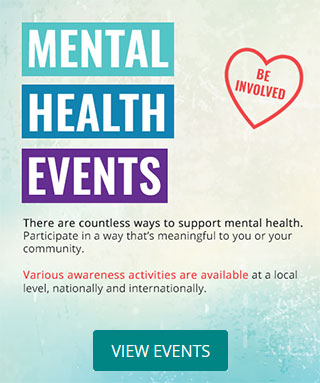MENTAL HEALTH PRACTITIONERS
Psychologists

In this section is information regarding the different types of psychologists and how to access a clinical or generalist psychologist.
for Consumers
01. Some possible pathways to counselling
02. A users guide mental health clinicians
for Clinicians
01. The future of psychology in Australia: view the Australian Psychological Society (APS) APS white paper
02. CPD events calendar maintained by the APS
Resources
01. Clinical psychologist overview.
Psychologists
Psychologists study human behaviour, investigating the processes related to how people think and feel. Many people affected by mental illness are helped by psychologists. Psychological treatments help by giving an opportunity to talk about thoughts and feelings with a trained professional in order to understand your symptoms, and to help you cope with them.
Medicare:
Psychologists attract a Medicare rebate from a GP referral. To locate a psychologist and learn more about accessing the Medicare rebate contact the Australian Psychological Society on 1800 333 497.
PSYCHOLOGISTS
Frequently asked questions (FAQs)
Are there different types of psychologists?
All psychologists in Australia hold general registration with the Psychology Board of Australia, meeting high standards in education, training, supervised practice, ethical and professional standards, and ongoing professional development.
A psychologist may also has a specific area of practice endorsement, such as clinical psychology, health psychology or sport and exercise psychology. A psychologist with an area of practice endorsement usually has additional university qualifications and supervised training in that specific area.
What is a clinical psychologist?
A clinical psychologist is qualified and registered under the Allied Health Practitioners Regulation Agency (AHPRA) and has undertaken specialised training to be endorsed as a clinical psychologist.
What is the difference between a psychologist and psychiatrist?
Psychiatrists are medical doctors who prescribe medications to treat mental health conditions. Some psychiatrists provide psychotherapy in conjunction with medications.
Psychologists are specially trained to provide psychotherapy and perform clinical assessments. Psychologists are unable to prescribe medications. Psychologists and psychiatrists often work together to support someone experiencing emotional difficulties or a mental health condition.
What does a clinical psychologist do?
The work psychologists do is incredibly varied. Broadly speaking, most psychologists provide assessment and therapy to clients, help facilitate organisational or social change, conduct psychological research, or administer psychological tests to individuals or groups.
Therapeutic approaches
Psychologists use a range of strategies, techniques and approaches to treat mental health conditions and emotional difficulties. Here is a list of some of the common therapeutic approaches used by psychologists that research has shown to be effective, although these are not the only treatment approaches.
Cognitive Behaviour Therapy (CBT)
Cognitive behaviour therapy explores the relationship between thoughts, feelings and actions or behaviours. People are encouraged to consider their unhelpful thinking patterns that can lead to emotional and behavioural difficulties. Time is spent challenging or questioning the evidence for these thoughts and developing some alternative, more positive ways of thinking which can improve a person’s mood and their situation.
Acceptance and Commitment Therapy (ACT)
During acceptance and commitment therapy, people are taught to recognise their thinking patterns and the associated feelings. Rather than challenge these thoughts and feelings (like in CBT), people learn to embrace and accept these as part of one’s experience.
Mindfulness
Mindfulness is based on Buddhist traditions. It is the process of bringing one’s attention to the present experience(s) or present moment. Techniques include deep breathing, meditation and relaxation.
Schema Therapy
People develop beliefs about the world and others based on their early experiences. For example, some people believe that their needs will be met and they will be cared for, whereas others, who might have
experienced abuse or trauma, might expect to be hurt, abandoned or rejected by others. Jeffrey Young who founded schema therapy identified 18 maladaptive schemas which reflect unhealthy and longstanding ways of relating to others and can lead to problems. An example of an early maladaptive schema is ‘self-sacrifice’ which involves putting other people’s needs first. This can lead to a person feeling unfulfilled and resentment toward that person can develop.
In schema therapy, people identify their early maladaptive schemas, recognise when these are triggered and explore the way in which these schemas are impacting their life. People learn to have their needs met in a healthy way and develop positive relationships with others.
Psychoanalysis
When some people think about psychotherapy, they identify with Sigmund Freud’s approach – psychoanalysis, and imagine themselves lying on a couch and talking freely about their experiences. According to Freud, people’s problems typically lie outside their conscious awareness. Psychoanalysis is a modern technique which involves helping people to gain awareness of their underlying issues and make meaning of their experiences. When people become aware of the reasons for their behaviour, then they can make changes and improve their wellbeing.
How do you access a clinical or generalist psychologist?
Psychology and Medicare:
If you have a mental health condition, or experiencing problems such as relationship issues, parenting, anger issues, substance use, suicidal thoughts, or are just dealing with day-to-day stress, discuss your concerns with your treating doctor. Your doctor might refer you to a clinical or generalist psychologist for support. You can access up to 10 Medicare rebateable sessions each calendar year with a referral from a doctor, psychiatrist or paediatrician.
Psychology and Private Health Insurance:
If you have private health insurance or third party insurance (e.g., TAC, WorkCover), speak with your doctor about obtaining a psychology referral. Some third party insurance schemes may fund psychology sessions.
Resources
Psychology Board of Australia
The Psychology Board of Australia is the national board for the psychology profession that is established under the national law. Board members are appointed by Ministerial Council (comprising Ministers of the governments of each state and territory and the Commonwealth with the portfolio responsible for health).
Registration standards, codes, guidelines and policies are available from their website FAQ and fact sheets section.
Australian Psychological Society
The Australian Psychological Society is the leading association for psychologists in Australia, representing more than 24,000 members. Their website offers up to date information and training resources.
Pathways
Some possible pathways to counselling document.
With special thanks to
Many people have contributed to the development of this project through research, focus groups, advice, information and ideas. We would like to acknowledge and thank all who have contributed and supported us in our endeavor. They are:
Elysia Pailsey Clinical Psychologist
Newsletters
Stay in the loop with our monthly newsletters!
If you are having thoughts of suicide, or severe self-harm please follow your crisis plan. If you do not have a crisis plan please call your treating clinician, therapist, general practitioner, one of the numbers listed below or go to the Emergency Department of the nearest hospital. In a life-threatening emergency ring 000.
Phone numbers and other supports that can be contacted in a crisis:
Life Line: 13 11 14 | www.lifeline.org.au
Sane Helpline: 1800 187 263 | www.sane.org
If you are having thoughts of suicide, or severe self-harm please follow your crisis plan. If you do not have a crisis plan please call your treating clinician, therapist, general practitioner, one of the numbers listed below or go to the Emergency Department of the nearest hospital. In a life-threatening emergency ring 000. Phone numbers and other supports that can be contacted in a crisis: Life Line: 13 11 14 | www.lifeline.org.au Sane Helpline: 1800 187 263 | www.sane.org






 The 2014 Act came into effect in July 2014. It introduced new principles to support people experiencing mental illness to make and participate in treatment decision (shared decision making) and to have their views and preferences considered and respected.
The 2014 Act came into effect in July 2014. It introduced new principles to support people experiencing mental illness to make and participate in treatment decision (shared decision making) and to have their views and preferences considered and respected.
